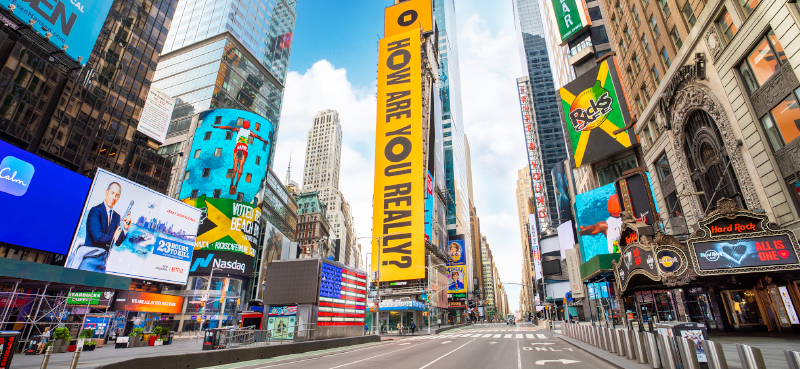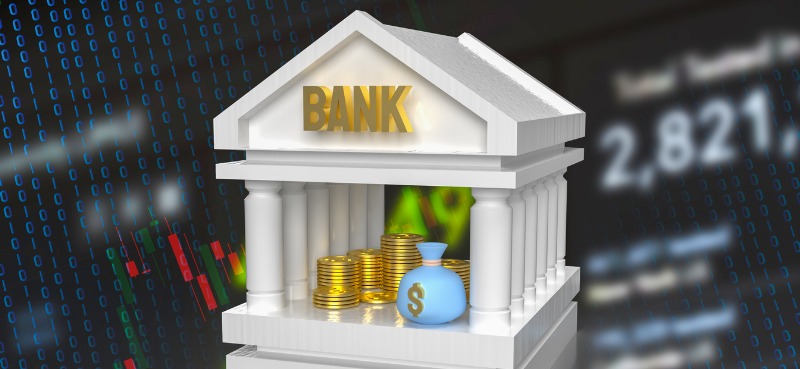There’s a massive story playing out in real estate right now… And if you’re 100% long stocks, it should scare the s*** out of you…
Real estate giant Blackstone (BX) is halting redemptions in its $70 billion Blackstone Real Estate Income Trust (BREIT). In other words, it’s putting a limit on how much money investors can pull out of the fund. It’s also selling some of its best properties.
I look under the hood and explain how Blackstone—and private equity in general—is misleading investors… why real estate could soon plunge 20% from current levels… and the alarming ripple effects that will spread throughout the economy.
The bottom line: This is a critical time for investors to start protecting their portfolios. Learn how with Moneyflow Trader.
- Why Blackstone is selling incredible Vegas properties [0:35]
- Why publicly traded REITs are getting crushed [4:20]
- Why investors were pouring billions into REITs [9:35]
- Why real estate could plunge 20% in 2023 [15:35]
- Private equity is lying about its returns [31:40]
- How to multiply your money as stocks collapse [39:55]
Wall Street Unplugged | 979
Get ready for a real estate collapse
Announcer: Wall Street Unplugged looks beyond the regular headlines heard on mainstream financial media to bring you unscripted interviews and breaking commentary direct from Wall Street right to you on Main Street.
Frank Curzio: How’s it going out there? It’s December 6th. I’m Frank Curzio. It’s the Wall Street Unplugged podcast whereby I break down the headlines and tell you what’s really moving these markets. So earnings season, basically over. So on the economic front for now CPI, Fed meeting coming next week.
Frank Curzio: When it comes to news flow, not so busy. However, there’s one story unfolding that I believe for sure who are one the biggest themes heading into 2023. If you’re an investor who is 100% long stocks, what I’m about to say right now should scare the crap out of you.
Frank Curzio: Let’s start on Thursday. Blackstone announced it’s selling at stake at MGM, Mandalay Bay, two great assets located on the Vegas strip for 5.5 billion. Not a big deal, right? We got Blackstone as our alternative asset manager with about $900 billion in assets under management. Maybe it’s the largest private equity firm. If not, very, very close. The largest in 2020. I don’t know where they are now. Very, very close, founded by none other than Stephen Schwarzman, legend in the private equity industry.
Frank Curzio: Five years ago, they launch a new product called Blackstone Real Estate Income Trust. BREIT, B-R-E-I-T for short. So it’s a REIT, but the catch is that it’s not publicly traded. It’s a private REIT. So Blackstone raised tens of billions of dollars to buy residential real estate properties and apartment buildings and people were lined up out the door to get in. Investors are pouring in over $2 billion a month, a month into this investment through 2021 and most of this year. This fund returned about 15%, they say safely, to investors over the past three years or so on an annual basis.
Frank Curzio: Now it has over $70 billion just in this fund. Barrons are reporting that real estate exposure in total is around 140 billion, but 70 billion just in this fund, which we’ll focus on, which amounts to 8% of total assets. Pretty significant. If you look at the 140, it’s even bigger. 15%.
Frank Curzio: With this fund alone through Blackstone has generating a fortune. Charges 1.25% of debt assets on breach. So not so bad, right? That’s not so bad. But of course they also charge a performance fee of 12.5% and has a hurdle rate of 5% of the company’s cost of capital for the fund. Blackstone’s fee related performance revenue, big word, big phrase, fee related performance revenue. That’s a big metric in private equity funds of how to value just like same store sales is to retail. I won’t bore you with the details. I’m just letting you know, but when you’re looking at this fund alone, Blackstone’s BREIT fund accounts for close to 20% of its total fee-related performance revenue. In short, this fund is a significant driver for revenue for Blackstone. Significant.
Frank Curzio: Now Blackstone has really ramped up its real estate purchases over the past two years, which makes sense with all the money flowing into it. Why since? Look at this investment. It was a layup, buying tons of residential real estate, apartment buildings, rental properties on school campuses, and renting it out at record high rates. As we look at rental prices, have surged post-COVID and that’s why you see the amount of properties they bought over the past few years have surged and the amount of people dying to get into this fund have surged, those assets under management. That was all good and dandy, especially when interest rates are super low. It allows the company to raise more money, cheap prices, buy up more assets, and charge huge fees to investors, while generating a pretty decent return for them overall when you strip out the fees and all the BS.
Frank Curzio: However, however, there’s always a however, higher rates are surging. And real estate, which is historically returned a little more than 3% annually over a 50 year period, it’s been much more than that post-COVID, real estate is not such a good investment anymore, especially when you’re looking at a risk adjusted return. You get more than 4% risk free in a two year, which is much more liquid.
Frank Curzio: What do we have? We have real estate starting to collapse this year where publicly traded rates, the ones that are publicly traded, focusing on residential rental properties have lost more than 30% of their value this year to date. Surprisingly though, Blackstone, which I’m going to show you in a minute, has pretty much similar properties in the same areas, their private fund is magically up 9% this year. It’s incredible. Holy shit. We got to get in this thing. Out-performing the rest of the funds [inaudible 00:05:37], even though you’re invested in the same areas and roughly same demographics.
Frank Curzio: You say, “Well how can that be? It doesn’t make sense. How do these guys know this secret sauce?” It’s like investing in a crypto that’s up 3000% this year. One of the main cryptos, when the entire crypto industry is down 75, 80%, how does that happen? But when you have a private vehicle, the market doesn’t determine the value. It’s because these types of investments, especially in real estate, are really, really illiquid. Real estate in general is known as an illiquid asset. This these are really illiquid now, meaning that it’s almost impossible for investors to sell, especially when Blackstone and other providers of private REITs make it that way, almost impossible for investors to withdraw funds, limit the amount of redemptions to 2% of the total assets under management in that fund each month and capping it out at 5% for the quarter.
Frank Curzio: This helps keep the value artificially higher, similar to what we saw in the credit crisis. Real estate was collapsing at a couple of people, not many, who saw her coming and the structured products betting against housing, they didn’t fall right away, even though home prices were getting destroyed. Because the funds offering this product, like Goldman, made sure that they were out of the real estate and all their investments before letting his clients sell and collapse the price.
Frank Curzio: Got to love Wall Street. Stuff’s great, but this is why liquidity is so important when it comes to big investors. Without it, you’re locked into an investment vehicle and even when it’s crashing you really can’t do anything about it except watch it collapse and beg for your money back and someone telling you, “Sorry, we can’t do it.”
Frank Curzio: Now, Blackstone sold these Vegas properties not because it thought it was a great trade and made money on it, it was fantastic. I mean, those assets you pretty much, I would think, you want to hold. They sold those Vegas properties because it had to, because they’re seeing tons of redemptions for its BREIT fund from investors.
Frank Curzio: Not picking on Blackstone. They’re not alone. Starwood has its own real estate income trust called SREIT with 15 billion assets under management or 8% of its total assets under management. You’ve also seen lots of UK funds have done the same, the many redemptions for their private REITs. They all have restrictions on redemptions, where investors who want to sell this and say, “Holy shit, I want to get out of it,” they can’t.
Frank Curzio: Now why is this such a big deal? Why is this such a big story? Because if you’re looking at BREIT and … we’ll call it SREIT, which is Starwoods, are the two largest private REITs and what’s happened to both, they see massive redemptions. If you look at the REIT industry in general, there’s 1,100 REITs in total around the world. Out of those, 800 are private, meaning they don’t have to report to the SEC, they’re not liquid, and since it’s the two biggest are seeing massive redemptions, what do you think is happening to the rest of them right now? And what would you do as an investor in the 800 private REITs if you’re invested in, let me tell you the exposure. The exposure that state funds have and Wall Street Journal had a pretty good story on it today, is Washington or another state, 22% of their assets are in real estate and some of these funds.
Frank Curzio: But if you’re seeing the two largest and people bailing out of these funds, what are you going to do if you own some of the other ones? You like to do everything in your power to try to get your money back? That’s why these things are blowing up right now. Now that’s a story. But let’s take a step back for a minute. Tell you something that’s not being reported because you need to see how these products are sold, which is significant. For example, if you’re a broker or analyst at a major hedge fund or family office, remember your job is to make commissions. That’s it. That’s how you feed your family. So you can help your clients gain exposure to the US real estate market by buying publicly traded REITs, which means you’re going to get what? Maybe a thousand dollar check or however much they put into it, put a million dollars, maybe a tiny bit more.
Frank Curzio: But when it’s down 30% like it is today, you’re getting an earful from your boss and your client. Why the hell did you buy this piece of shit? Interest rates are high. You’re crazy. Your client’s yelling at you. You know? That’s not worth a thousand dollars to these people.
Frank Curzio: Or you can do option number two. What’s in door number two? Say you have a client with a million dollars. Now you can put them into a private REIT owned by Blackstone or Starwood and get paid probably around $50,000. It’s the going rate. Trust me. I talk to insiders about this. This also saves you the agony of losing your job since, hey, I’m investing alongside Blackstone and Starwood. I mean, these are two biggest, most popular, best private equity shops in the world. They collapse, it’s their fault. Don’t blame me. I just got you into the biggest company’s exclusive. The boys club.
Frank Curzio: Easy to pass through compliance, your boss and everything, plus you get a bigger paycheck. It makes sense, right? So that’s why you saw so much Mike, two billion, just in Blackstone’s BREIT fund alone a month was going into it. There were people lined up. More and more, more, more. We need to buy more, more, more houses. You got to see how much real estate they bought over the past two years.
Frank Curzio: It explains why these funds have grown into tens of billions of dollars in the past 12 to 18 months. The broker who sold his private REIT is getting 5%. The fund is making 1.25% management fees. Plus over the past couple years, 12 and a half percent performance fee. Nice 5% hurdle rate, which really, really eats into returns, but it’s safe. It’s real estate. Where did we hear this before? I think I heard this. I think I heard this in 2004 to 2007, pre-credit crisis. Real estate was surging. It’s safe. It’s fine. You have nothing to worry about. It’s great. But now, with rates surging, real estate prices starting to collapse, those returns suck right now and everyone is asking for their money back or most people are and they want it back right now.
Frank Curzio: Blackstone and Starwood have special clauses, again, only limiting those redemptions to 2% of the fund’s total assets per month, 5% for the quarter, max. So what does Blackstone have to do to cover this? They have to raise money. Well, they need money. Right? That’s why they sold the 5.5 billion in two of their most prized properties. That’s what you do when you need money. You sell the things of most value. That’s what you’re going to get the most money on. That’s what happens on illiquidity crisis. You’re going to sell a that’s down 70, 80, 90%. Hey, this stuff looks really good. It’s up $5.5 billion right in our pocket. Not bad. Which again, they sold because they had to, not because they wanted to.
Frank Curzio: Blackstone has 1.4 billion in cash on hand, dug into this, seems like a lot, but its backlog of redemptions just from November was 1.7 billion, probably over five billion now in total. Again, that’s the most they could redeem, but every month that goes by is like another 1.7 billion. So five billion over the past two months, again, this is reported by Wall Street Journal picked up on the story today, which is starting to bring a little bit more attention to it, but not enough.
Frank Curzio: Blackstone has a $7 billion credit facility, but that’s something they’re going to have to tap and think about what’s funds. Even with the restrictions, two billion every month, two billion every month, two billion. It’s going to go lower and lower. Assets go lower. I think those assets now went from 70 billion… now it’s 65 billion. It’s going to go lower and lower. It’s going to cause the price… what are you do when you’re selling assets? You got to sell assets. As you’re selling these assets to redeem the money, they’re going to go lower and lower and lower. People are going to continue to ask for their money back.
Frank Curzio: Now, as these redemptions surge, and they will, they’re going to get a lot worse, you’re starting to see it come up in a lot of places and redemption is a very scary word. Crypto investors are pretty familiar what happened when BlockFi announced redemptions? A while ago, FTX bailed them out, then FTX … everybody knows that story by now. They hold the redemptions. Voyager, Celsius, Genesis, all announced that it’s holding redemptions in either their whole business of certain parts of their business. And what happened? Everyone rushed to take their crypto out of these firms. Not just those firms though, as well as firms that are solvent to have good balance sheets like Coinbase and Binance.
Frank Curzio: There’s more Bitcoin that’s been removed from these platforms that’s now in cold storage than ever, ever before. Massive amount of exodus. Hey, I want to hold this. I want to keep it in my cold wallet, which is offline just in case if it’s frozen you’re going to lose it. I want my Bitcoin forever. I want to hold it forever. But if you’re holding it, maybe you said that in Celsius, maybe you said that in Voyager, and now you can be screwed.
Frank Curzio: As redemptions surge for these private real estate funds, it’s going to eventually lead to the selling of properties. I don’t know if you’ve ever been in this type of environment. You can say stocks or whatever and cryptos. That gets sold. Everything gets sold at whatever price. I mean, you have to sell something immediately. If you’re forced to sell, especially when the markets are unfavorable, which they’re becoming unfavorable in real estate across the US. There’s certain areas will hold up a little bit, but think about 2007, ’08, and ’09. You’re going to see prices go down, go down sharply 20%, 30%, at least, they can go down. And we can see real estate fall 20% from here and still be higher than they were at the end of 2019 before COVID.
Frank Curzio: You may say, “Oh man, 20%. That’s crazy. That’s nuts.” It’s not that nuts when you’re seeing especially rentals and that market double digit growth last two years, which is insane of how much rentals have gone up. You say 20%, 30% is crazy. The publicly traded REITs. Camden Property Trust, Mid-America Apartment Communities, Essex, these are names I’ve researched. I’ve researched for my newsletters several times over the year. Very familiar with these. They’re all down 30% year to date and when you look at these properties, which I’ve done the homework here, to compare, Camden has huge operations in the south and the west. That’s where most of their properties are.
Frank Curzio: Essex, huge operations in western US. Mid-America Apartment Communities, it’s big operations in the southeast and southwest regions. This is the same regions, demographics and Blackstone’s BRIET fund, which is private, and at the end of September, they said it’s up 9% year to date. Well, everything else, those other three are down 30% plus. But again, I know these regions are similar to where they own their properties because that’s, when I was researching them, all the places I want to be in.
Frank Curzio: You’re looking at Florida, you’re looking at a Texas, no state income states, holding up much better than other places, so if you’re going to move from place like California or New York where you’re giving away 60% of your salary, F this. I’m going to go to Florida, Texas, Nevada. What is it? Six of them I think altogether. I mean, you save a lot of money. There’s a reason why deGrom signed and left New York for Texas. If you do the math, it’s probably about whatever his contract was. I think I was looking at it. It was probably 18 to $20 million he gets in extra just because of the state he decided to move to. It’s a big difference when you’re talking about this type of money, so in terms of taxes. Not to mention that’s where the population growth is, right? So that’s what you want. That holds up the value of these apartments and these real estate investors much better when you’re looking at the demographics of these areas. They’re all kind of in the same areas. That’s where the growth is.
Frank Curzio: But you should see how many properties Blackstone purchased over the past two years. The top of the market. It’s insane. You got to dig through this, probably about five or six extra clicks to get in, but you will see it. They have 20 pages of all the investments that they made, and yes, they’re going to see occupancy above 90%, 90%, 90%, whatever. Let’s see how that goes going forward and the prices. But according to the fund’s data, okay, coming straight from their website, 78% of this fund is in rental housing and industrial. It says the fund invested rental properties where rental growth exceeds inflation. Think about that. I don’t want to get too complicated here. Rental growth exceeds inflation. Inflation is very, very high, but rental growth is double digits. Inflation ever got to the double digits. That was great, but now this is their fund’s objective. This is what they’re supposed to do.
Frank Curzio: Let me ask you a question. Is there an area today that you can find in the US where real estate or rentals is outpacing the pace of inflation? I mean, good luck with that, especially trying to buy properties like this going forward with economists expecting inflation to stay above 3% by the end of 2024, maybe into 2025. Will rentals grow? Because they’re going down right now. Three months in a row, we saw rental properties gone down. Yes, off of a very high base, but they’re going down. Every member, what’s the alternative here? And this is a safe investment. I’ve got to invest in real estate, they’ve got to invest in Blackstone. I’m going to invest in Starwood. Safe investments. This was a great investment pre-January. Now you can get 4% risk-free without worrying about selling real estate where prices are starting to come down every single month.
Frank Curzio: Also, within the fund, it says has a two year weighted lease length across its rental portfolio, so every two years it resets. It gets 70% of its assets. How much do you think that they’re going to be able to charge for rent once this two year period is up as it resets after two years? Some, maybe it’s 20% of their portfolio, resets. Over the next three months, another 20%. Whatever. You know? Over that two year period, you think they’re going to be able to get more? Maybe over the last two years, maybe a little bit more, but think about that as we keep going forward. It’s pretty crazy.
Frank Curzio: The fund states that 87% of this is fixed rate financing. That’s cool. But again, the average lease is two years. You’re buying more property. You’re buying the property and renting it out, but buying the property going forward, which is this fund’s objective, are you going to be buying any property? Probably not. You’re looking to sell it, and buying it … where were we in January? 3% in mortgage rates. Now they’re well over 6%.
Frank Curzio: Also, when you dig into the company and look at its disclaimers, which is always fun to do after something blows up or there’s trouble, no one ever does it. Everybody just wants to invest. They don’t look at disclaimers. They don’t care. But when shit blows up, FTX say, “Oh, we have no responsibility.” No. All these disclaimers that you think are all bullshit. This is why when you look at prospectives and stuff they’re like 87 pages where 65 are all these risks. You know?
Frank Curzio: If I walk outside and lightning strikes a building and a building collapses on the car, the car blows up, and I burn to death, I’m not going to have to pay anybody. They’ll throw any single risk possible in there, anything possible, but it can’t happen. That’s what they do.
Frank Curzio: When you look at some of disclaimers, it’s kind of funny. It says BREIT has incurred 702 million in net losses excluding net losses attributed to not controlling interest in third party JV interests, for the six months ended June 30th, 2022. This [inaudible 00:22:07] a ton of money in the first six months of 2022. What do you think has happened over the past five months? You think the real estate market is better the last five months or worse? You think it’s going to get worse into next year? It’s completely shut off.
Frank Curzio: They say this amount largely reflects the expense of real estate depreciation, amortization, in accordance to GAAP accounting rules. Wouldn’t you expect that to continue going forward? You think these losses are going to increase? Does anyone own a real estate property in the US that’s worth more right now than it was six months ago? Maybe a few of you, but most of you know, and I talk to people who are trying to sell some of their high-end real estate and it’s on the market for a few months and they can’t sell it. This is in Florida, which is one of the prime markets.
Frank Curzio: Getting back to redemptions, UBS says that a ton of redemptions is coming from Asia. Do you guys see what’s going on in Asia right now? I mean it’s so funny how people are looking at it going, “Oh, Asia’s fine.” One week, it’s fine. It was terrible with these protests and now it’s fine. I’ve been there. Do you know when these people leave [inaudible 00:23:13], they go back to mid-China. They go back to where they live, right? They go here six months. They have these facilities that I visited, that I saw in Shenzhen, and then they don’t come back right away. Oh, oh. Government said everything’s okay. No, are you kidding me? I mean there’s some great YouTube channels that you could follow that are being suppressed. Everything’s being suppressed. They don’t want anything, any censorship at all, to show what’s going on. Asia, especially China, is terrible right now.
Frank Curzio: Real estate is down incredibly, especially commercial real estate. I mean, there’s quotes from some of the people running. The biggest real estate companies saying, “This is a tsunami. This has never happened before. We’ve never seen this, profits down 70, 80%. We’ve never seen anything like this.”
Frank Curzio: So what are they seeing here? They’re like, “Oh, we’re invested in real estate, but we need money to either cover some of those expenses,” so they’re looking to sell right now, not to mention it makes sense to sell some of these private REITs because they’re up tremendously. I mean, they want to sell them for tax purposes, but you know with the market, once it readjusts, I mean everything else is down 30% within the same category. The only reason this is not down is because it’s private and they’re controlling the liquidity around it.
Frank Curzio: But then, even with Asia, you can say, “Okay, I’m just going to buy two year treasuries, earn 4% risk free. I don’t have to worry about selling this hard asset, which is illiquid and hard to sell, even if it’s not private.” Or maybe you’re like, “Listen, Asia’s down so much. I’d rather spend money there and have a 10 year outlook buying that real estate that’s down tremendously more than it is in the US right now.” Either way, they’re asking for their money back.
Frank Curzio: Even foreign investors invested in these things, are asking for their money back, especially through the UK, especially through Europe. Also, in Blackstone’s disclaimer, which is cool, it says, “There is no public trading market for our common stock and repurchase of shares by us will likely be the only way to dispose of your shares.” Okay. Everybody pays attention to this when it’s too late. And they say, “We are not obligated to repurchase any shares under our share purchase plan and may choose to repurchase only some or even none of the shares that have been requested to be repurchased. In addition, repurchase will be subject to available liquidity and other significant restrictions.” Again, there’s no liquidity. “Further, our board directors may make exceptions to modify or suspend our share repurchase plan. As a result, our shares should be considered as having only limited liquidity, and at times, may be illiquid.” Sounds like this is one of those times.
Frank Curzio: In other words, there’s their disclaimer. If you’re invested in this fund, you’re basically fucked. Outside of the 2% redemptions you’re allowed total asset management every month, you’re not getting your money back. But this ends up to be a lot of money. If you’re looking at 2%, 2%, it constantly drags more and more and more, which is going to mean I’m going to have to sell more properties, which they’ve done, more their good properties. And this is just I’m just talking about Blackstone. Look at the whole industry. But as investors, I guess it pays to read the fine print sometimes. Not easy. There’s disclaimers everywhere.
Frank Curzio: What does this all mean? If you’re looking at real estate prices, they’re likely, very likely, very, very likely to collapse in 2023 and probably into 2024 since there’s no demand to buy these homes where money already dedicated to be invested in real estate is locked up and they’re trying to get it out. Also, if you’re looking from the individual investor, which a lot of these funds have ties to, is individual investors, these apartments where they see the saving rate collapse at 3%, lowest level in decades, while the credit card debt’s going through the roof. Again, this is the second time. I got one from E-Trade last week, which I posted on Twitter @frankcurzio if you want to follow me. And now I just got one from Bank of America who have my business accounts and personal accounts and they said, “Hey Frank, open up to HELOC loans.”
Frank Curzio: Home equity lines of credit. That’s what they’re trying to sell, which is crazy. Those people need money more than ever. But now, the one place where they are rich, or cash rich … I shouldn’t say really cash rich … is the equity in their homes, which has gone up significantly, but now it’s coming down and it’s very difficult for them to take out money unless they’re going to do it at a much, much higher rate, which isn’t that bad if you’re taking out six, seven, even 8% if the average credit card loan is what? 19% record high right now.
Frank Curzio: Let me take this equity out of my house. We also had that worked out during a credit crisis. And pay off my massive credit card loans, which makes sense, again, if you could borrow, but you’re still going to have to pay that back at 8%. That’s why you see the same rates go lower and lower and lower, not to mention where’s the demand coming from where individual homes, who’s going to be buying these homes where rates are at 3%? 3% at the beginning of the year. Now mortgage rates are over 6%.
Frank Curzio: It reminds me of 2006, early 2007, when the cracks in the foundation started to show. This is where New Century Financial Corp started to see massive losses. This was February 2007. You know what? Nobody gave a shit. In June, Bear Stearns hedge funds and that was four billion in losses out of nowhere, which were based on real estate and subprime. Again, few paid attention.
Frank Curzio: Even October in 2007, we saw the market started to come down, but no one was really that concerned. Everyone said it’s going to be short term in nature. It will be fine, but Citi announced six and a half billion in losses in write-downs of their subprime real estate debt. A few days later, Merrill Lynch came out and announced 8.4 billion in losses. That’s the real estate leverage loans. Again, this is a $70 billion fund. You have Starwood, which is a huge fund. Whatever it is. It’s 18 billion. You have the rest of these 800 private REITs. This is a massive market, guys.
Frank Curzio: When money’s being locked up and it’s going lower and people are losing, it’s going to impact the markets. Remember all that stuff that happened before the actual crisis in 2008 when the markets really crashed and we found out, wow, there’s actually a real credit crisis. There’s a lot of leverage in real estate then. And to be clear, this is not the same scenario. There won’t be a credit crisis. There’s much less subprime real estate in the banks’ balance sheets. Every year they go do stress tests. But it was funny because at Squawk Box this morning I saw Jamie Dimon talking about this.
Frank Curzio: Banks are in the best shape in the history of the country in terms of the balance sheet. You’re right. That’s fine. That doesn’t mean real estate’s not going to absolutely collapse from here just because the banks are better. It means that we’re not going to have a credit crisis with the Fed having to do something that’s never done in history and inject tons of money into the banks, backstop everything, get warrants, AIG, Fannie and Freddie, which again, led to the consequences of COVID, because they figured … let me spend 11 and a half trillion. The last time we spent money, we kicked in the market. We bought all these assets. We just sat and waited. We still don’t know what to do with Fannie and Freddie after two years, right? After two years of putting them in conservatorship, they’re making billions and billions and billions every quarter, right? They own so much real estate the government owns that they said, “Let’s just keep in conservatorship and make the money.”
Frank Curzio: Bill Ackman was arguing about that. That’s bullshit. They should be publicly traded entities. I’m like, “Why is this guy bothering fighting against the government?” There’s so much better things or better investments to do. The government doesn’t have to do anything. They just sit there and do nothing. That’s what they did with these investments.
Frank Curzio: But now that led to, hey, let’s spend a limited amount of money. It worked last time. Well it didn’t work this time. It’s a big difference giving it to the banks to sure up confidence than giving it directly to consumers and businesses that just spent all of this where earnings are inflated so much, profits inflated so much, because you pulled forward probably three years of demand and now you’re removing all this liquidity from the market.
Frank Curzio: When Jamie Dimon and people say the banks’ balance sheet, they’re right. It doesn’t mean that we’re not going to collapse when it comes to real estate, which we’re going to see in real estate. It’s inevitable. I could tell you. You may look at JP Morgan, Citi, Bank of America, Wells Fargo, okay, they’re fine. Okay, what about the regional banks? Look out. Holy cow. They have a lot of exposure. They don’t have those balance sheets, [inaudible 00:31:36] balance sheets of the big guys.
Frank Curzio: When you’re looking at the industry, every rental real estate REIT that’s publicly traded is down 30% year to date. Again, Blackstone is telling us their portfolio’s up 9% year to date. Other private REITs telling us they’re fine while redemptions are surging.
Frank Curzio: These people are lying through their teeth. It’s similar to the story Chapek was telling Disney shareholders for the past 18 months. “Everything is fine and dandy. We’re good. A hundred million, 150 million subscribers. We’re fine. Holy shit, we got more subscribers than anyone.” Then one guy raised his hand in the back room and said, “How much are you making for those subscribers?” Those numbers were available. I’ve been telling you guys for 18 months. Oh. About internationally, a dollar in change and maybe like $4. Oh. That’s weird because everyone else in the industry is generating 11, 12 per name, meaning that you’re giving the service away absolutely for free.
Frank Curzio: Numbers matter. Numbers matter, guys. We’re in a market where numbers matter. They didn’t matter in a growth market with 0% interest rates and you can add as many subscribers. That was the business model. I don’t give a shit about profits. I don’t want to see profits. If you want my venture capital money, if you want my private equity money, if you want it, I need to see growth. I need to see massive, massive growth in your platform. I need to see more people coming to your platform. Don’t worry about monetizing it. We’ll figure that out later on. No. That business model’s done. That business model’s done.
Frank Curzio: The cost of employees is much higher. The cost to raise debt is much higher. Value is much more important. Balance sheets are much more important, so pay attention, because again, 800 out of the 1,100 REITs are private, meaning they don’t need to report the SEC, so numbers are not that easy to find unless you’re doing the digging. It’s not that difficult to do the digging in the two largest right? The two biggest names of space are seeing massive redemptions, but they’re seeing massive redemptions, and if they’re seeing it, the entire private REIT industry is seeing the same thing, and likely even more redemption requests.
Just forget about the numbers for a second. Common sense. Who wouldn’t want their money back right now after seeing Starwood and Blackstone announce that they’re limiting redemptions. It’s like Apple, Google, and Microsoft announcing that conditions are absolutely horrible. We’re laying off employees. Things are bad and you have all these ship makers and hardware and software companies coming out and telling you, “You know what? Things are great for us. Tech is on fire. These big guys are [inaudible 00:34:14] balance sheets, they have no idea what’s going on.” Really? I think they do.
Frank Curzio: I just watched some guy on TV, I’m not going to mention his name, I’m sure he’s a nice person, say that, “Oh, let the market go higher. Apple’s only a small percentage,” whatever it was, 6% of the S&P 500. “We can go much higher if Apple crashes. It’s not a big deal. This isn’t an Apple market.”
Frank Curzio: Do you know how many companies are tied to Apple? Do you have any idea? I mean not one person brought this up and he was on a panel on Fast Money. Now one person brought this up. I go to the Consumer Electronics Show every year. Every year. There used to be 4,000 companies. This year is probably going to be about 2,500 companies. I think it’s 350 out of top 500 global tech companies announce all their products. From going to this for 10 years, I could tell you one thing, Apple never goes there. Apple’s one of the few companies that you’ll never see there. However, 80% of those companies are talking about products that work with Apple, whether it’s apps, whether it’s services, whether it’s Samsung making parts for them, whether it’s Gorilla Glass for Corning.
Frank Curzio: I mean, hundreds and hundreds and hundreds of the top companies rely on Apple for their growth. If Apple is coming down because their numbers are coming down, the market’s going to come down. You can’t just say Apple’s 6%. Again, you got to look under the hood a little bit. The point is, if you have the two largest private REITs saying, “We’re seeing massive redemptions right now,” which is going to lead to more redemptions because that’s a very freaking scary word, if I see someone’s redemptions, I’m like, “Holy shit, how do I get my money out of this right away?”
The two biggest are seeing it. You know the whole industry’s seeing across the world. Again, private REITs, it’s a very big problem and just one of the many cracks, many, many cracks, that we’re going to see forming in the global foundation with the Fed raising rates at its fastest pace in the history of the Fed era. This is what happens.
Frank Curzio: To think there’s going to be no consequences, listening to Jamie Dimon saying, “We’re going to see a mild, maybe a little bit more difficult, recession,” it’s laughable. We’re in unchartered territory. We’ve never seen anything like this. You can say, “Well back in the ’80s.” Yes, back in the ’80s we had similar inflation. If it was calculated the same way that was calculated in the ’80s, our inflation would be double where it is today. Again, they revise it to keep it lower. That’s why rental income is such a big component, because rentals never go higher. They go higher by like 3%, even during the boom leading up to the credit crisis when real estate surged, same thing. Rentals kind of stayed steady.
Frank Curzio: Let’s make that a bigger component of CPI. This way, we don’t really have inflation. We could spend as much money as we want. Keep interest rates low. Politicians are freaking happy, everyone’s happy, assets are doing great. Now it’s coming back to bite you in the ass because rentals don’t come down fast enough. [inaudible 00:37:00] CPI. They’re looking at the CPI and saying we need to see 2%. You’re not going to see that until end. Nobody has a CPI going to 2% by the end of 2024. There’s not one economist in the world right now that says it’s going at 2% or lower by the end of 2024. That’s what the Fed says they need to see before they start to pivot and lower rates.
Frank Curzio: That’s a long time from now. 24 months of hell it could be. To think there’s no consequences, raising by 75 basis points four times in a row and you still expect to raise rates into next year, it’s extremely naive. Next few days and weeks … going to be really digging into this, see who has the most exposure. What other sectors inside and outside real estate will this impact the most? Will the Fed need to bail out this industry, which means more inflation on the way if they’re spending more? Or does it mean real estate prices are likely to fall much faster due to forced selling, coupled with the rise in unemployment rate. If we see that over the next 12 months, will this cause inflation to fall faster than expected to whether the Fed may look to lower rates next year? Which again, is not on the table for most people. It’s not on the table. Not if you listen to the Fed.
Frank Curzio: You may say, “Frank, that’s a positive, that’s good.” Hold on, because in order to see that happen and the Fed pivot, we need to see the real estate market fall sharply from these levels. We need to see corporate profits absolutely collapse and unemployment skyrocket. That’s not a good environment we’re going to have to see before the Fed decides to reverse course. That’s the only way we see inflation come down very, very fast, so it’s heads, you lose, tails, you lose. It’s not a good environment.
Frank Curzio: Again, looking at the Fed, deciding to pivot, that’s well into the future. It’s not 2023, but next year. Again, looking at this, one of the many cracks you’re going to see in the foundation, the unintended consequences of shutting down the biggest growth driver in world GDP, which is real estate, just shutting it off. That’s what the Fed did, shut it off like a faucet.
Now we’re like, “Oh. Let’s gradually…” Nope, turn it off completely. This is where a bulk of the household wealth comes from. Remember household wealth and spending. These are sentiment indicators. When people feel like they’re richer, they spend more. When they feel like they poorer, they spend less.
Frank Curzio: Household wealth was at record highs. You know what comprised of household wealth? Two things. It’s your stocks and your real estate. Their stocks have already gotten nailed. S&P is down 15%. Most people are down more than that and now you’ve seen the value of real estate come down sharply.
Frank Curzio: I can’t see investors, even businesses, increasing spending in 2023 under these incredibly difficult conditions. This is what I’m looking at into 2023. There’s going to be winners and there’s going to be losers, more losers then winners. Like I say, Moneyflow Trader, you’re buying puts, you’re betting against companies missing earnings, and when they do and they report lower, I can tell you. A great sign for buying puts right now is Pepsi.
Frank Curzio: Pepsi reported one of the best quarters out there. They reported early in the cycle, early when early for Q3, said, “We have tons of pricing power, great profits, awesome, seen across all regions.” Now they just came out and said they’re firing employees. They’re laying off employees. That’s how quick things change. That’s a company that reported great numbers. If you’re looking at a company that reported earnings and they reported record earnings and they said, “Everything’s great, we’re not seeing a slowdown,” you could buy puts in them and I’m telling you, there’s probably a 90% chance you’re going to make two to three X on your money over the next six months if you buy long data puts because everybody’s going to see. VF Corp, numbers are great. All of a sudden they’re not so great. Look what happened yesterday.
Frank Curzio: Winners and losers. I’ll be sure to share those with subscribers to my newsletters in the weeks and months ahead. But this is a story you need to be paying attention to. Looked under the hood. It’s going to get a lot worse. Wall Street Journal just reported on it. A couple other companies reported on it. You’re seeing it mentioned on CNBC here and there, but when you dig into what I told you today, you can see the problem is very, very, very big. Very big. It also makes me think that most private equity firms, again, people are buying them and this is great and they buy stuff and KKR said, “This is a great environment. We buy stuff at cheap levels.” What about the stuff on their balance sheet now that they own where they’re leveraged in real estate, which a lot of them are?
Frank Curzio: Be very, very careful with this industry. You’re probably going to see it come down a lot further. Guys, that’s it for me. Questions, comments, I’m here. Email frank@curzioresearch.com. That’s frank@curzioresearch.com. Thank you, as always, for the support. I’ll see you guys tomorrow. Take care.
Announcer: Wall Street Unplugged is produced by Curzio Research, one of the most respected financial media companies in the industry. The information presented on Wall Street Unplugged is the opinion of its host and guests. You should not base your investment decisions solely on this broadcast. Remember, it’s your money, and your responsibility.
























